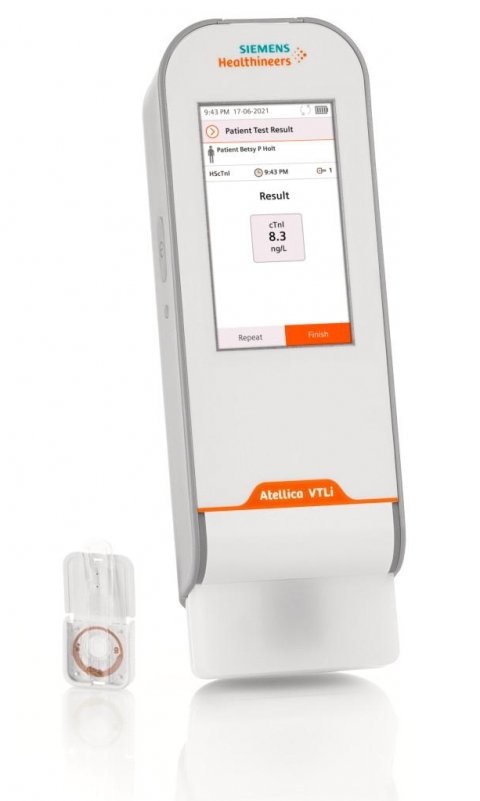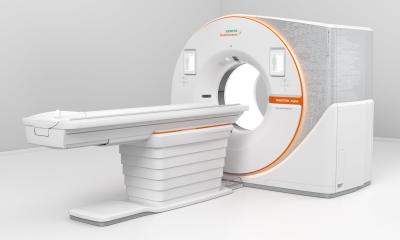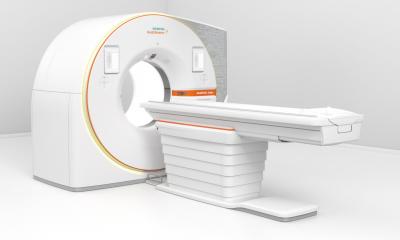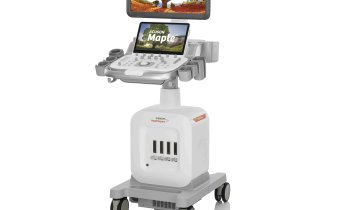News • POC Troponin I analysis
Expediting the diagnosis of heart attack
Siemens Healthineers announced the company's Atellica VTLi Patient-Side Immunoassay Analyzer has obtained CE mark and is expected to be available later this spring.

The Atellica VTLi analyzer provides lab standard, high-sensitivity cardiac troponin I (hs-cTnI) test results to clinicians in eight minutes using a patient's fingerstick blood sample. With this industry first technology, Siemens Healthineers aims to improve the patient care paradigm, providing hs-cTnI results at the patient’s side to help clinicians properly diagnose and treat heart attacks with confidence.
“Siemens Healthineers is among the best-in-class with cardiac disease state solutions, immunoassays, and critical care diagnostics. Now we are raising the bar as the first company to offer a true point-of-care high-sensitivity cardiac troponin I test with results comparable to laboratory performance using just a fingerstick sample. Healthcare providers have been waiting decades for hs-cTnI at the point of care and now the wait is over. This new technology further expands Siemens Healthineers' broad cardiac portfolio throughout the entire patient care continuum,” said Christoph Pedain, PhD, Head of Point of Care Diagnostics, Siemens Healthineers.
Globally, millions of patients present annually to the emergency room with symptoms that may be related to a heart attack. Responsible for an estimated 31 percent of all deaths worldwide, cardiovascular disease is the leading cause of death. Fast triage for patients presenting with symptoms can help save lives. Clinicians primarily rely on the central laboratory for critical blood test results before they can make care decisions for their patients. This process can take an hour or more to get results. The substantial reduction in turnaround time achieved when introducing the wireless, handheld Atellica VTLi analyzer may offer clinicians a fast pathway to help diagnose and treat their patients, helping to accelerate care, improve patient outcomes, and reduce the strain felt in overcrowded EDs.
I believe this POC system could easily integrate into existing hospital and clinic workflows, with the potential to impact patient care and clinical outcomes, with operational and financial efficiencies
Fred Apple
When a patient presents at the hospital with symptoms of a potential heart attack, securing favorable outcomes depends on the speedy availability of test results, and the confidence care providers have in them. “In today’s busy emergency departments across the globe, there is a demand by clinicians for the rapid measurement of cardiac troponin, using guideline-recommended, high-sensitivity assays, to quickly and accurately rule in and rule out myocardial injury and myocardial infarction in patients presenting with symptoms suggestive of ischemia," said Dr. Fred Apple, PhD, Medical Director of clinical laboratories, clinical chemistry, point-of-care testing, and clinical and forensic toxicology laboratories at Hennepin County Medical Center. "The Siemens Healthineers Atellica VTLi point-of-care assay technology, utilizing whole blood with result turn-around times in as fast as eight minutes, provides a high-sensitivity cardiac troponin I measurement that is equivalent to the diagnostic and analytical accuracy of instruments found in the central laboratory. I believe this POC system could easily integrate into existing hospital and clinic workflows, with the potential to impact patient care and clinical outcomes, with operational and financial efficiencies.”
The Atellica VTLi system has wireless capability that easily integrates and directly connects to data management systems, including the Siemens Healthineers POC Ecosystem Solution, and the laboratory and hospital information systems. Together, this offering provides the laboratory centralized control over decentralized point-of-care testing.
The Atellica VTLi immunoassay analyzer is the resulting innovation stemming from Siemens Healthineers' acquisition of Minicare BV, which was completed on July 2, 2019.
Source: Siemens Healthineers
14.04.2021











